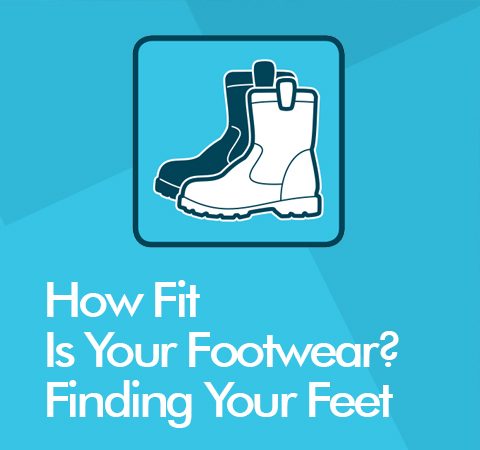Despite being one of the most preventable workplace accidents, the Health and Safety Executive (HSE) found that slips and trips are the most common
cause of injuries to employees. Research also conducted by the HSE found that these slips and trips cost UK businesses a staggering £500m a year in injury claims, investigation time, production delays and plant damage.
But what role does PPE play in this?
While there are many factors at play when it comes to these kinds of accidents, such as visible cabling and obstructions, one key consideration is footwear. A poorly specified or maintained shoe can increase the risk of tripping or slipping, due to the protective qualities being either inadequate for the environment or depleted. Therefore, the key is to firstly ensure footwear is suitable by identifying the main surfaces and contaminants present in the workplace so that suppliers can advise on appropriate footwear.
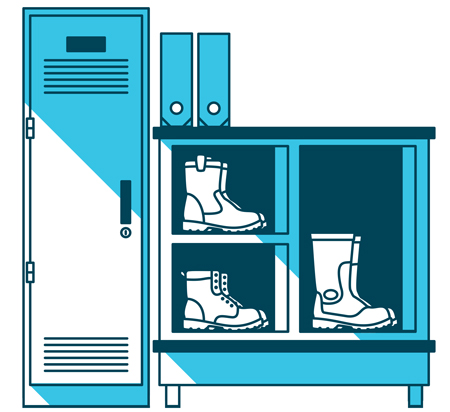
Typically, the right footwear selection can be made by asking the same four questions regardless of industry, see the below infographic. Using the answers to these questions, you can start to understand the requirements of your footwear, then it’s a case of finding the right match.
Four key questions when selecting safety footwear...
1. What is the common surface/terrain?
Safety boots and shoes feature different tread patterns and sole compounds specifically to achieve grip in a variety of environments from smooth concrete to uneven mud.
2. Are there likely to be contaminants to the normal
Contaminants can come in a variety of forms dependent on the industry from natural fats in the food industry, to chemicals and oils in automotive.
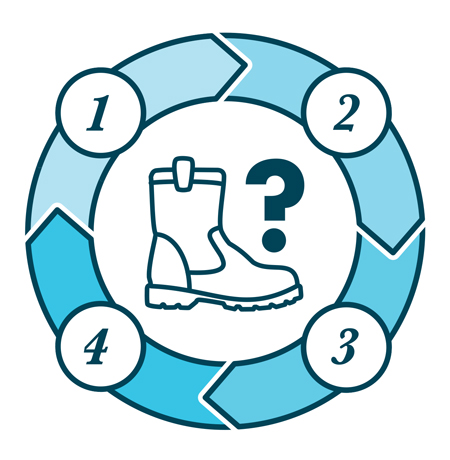 2. Are there likely to be contaminants to the normal surface?
2. Are there likely to be contaminants to the normal surface?
Contaminants can come in a variety of forms dependent on the industry from natural fats in the food industry, to chemicals and oils in automotive.
3. What are the specific hazards associated with the workplace/task?
Carrying heavy objects? Flammable liquids at risk of electrostatic discharge? Cold conditions? Whatever the hazard, there is usually a boot/shoe to suit the situation.
Here are a few examples from different industries:
Automotive
Accidents in this industry can be serious, with workers frequently operating heavy machinery. A shoe like the Aimont 24Bit Calvin is ideal. With its sporty look, they are popular with the end-user but also offer state-of-the-art performance in anti-slip. The 98GRIP sole is a special PU compound and the outsole design features special transversal grooves, giving an outstanding performance of slip resistance on any surface, exceeding the requirements of SRA flat test by three times.
 Food and Beverage
Food and Beverage
The risk of slips in a food preparation and processing environment is increased, given that it involves a number of liquids and oils. Having an adequate pair of slip-resistant shoes here is therefore crucial in case of greasy surfaces. Supertouch®’s own Food-X slip-on footwear has been designed with these needs in mind. With an oil-resistant anti-static sole and a water-resistant outsole, they keep the user protected and comfortable at all times. You can also wipe them clean after use and they feature an anti-bacterial lining for odour control and hygiene.
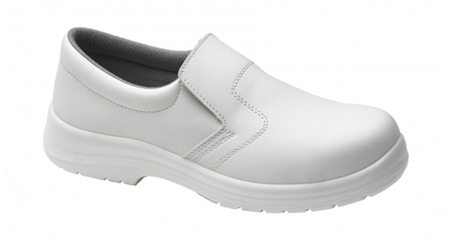 Warehouse and Logistics
Warehouse and Logistics
Those working in this industry could be walking up to 20km a day, so obtaining comfort as well as protection is important. Lightweight trainer style safety shoes are now commonplace in this industry, but not all deliver the same benefits. Aimont’s Vigorex shoes include anti-fatigue technology that maintains healthy blood circulation and improves wearer wellbeing. The BASF Infinergy® material used in the Vigorex sole provides heightened shock absorption, and optimised comfort and cushioning. In fact, out of the top ten athletes in the last New York marathon, seven were wearing shoes fitted with Infinergy® sole technology. Anti-fatigue occurs due to a ‘rebound effect’ whereby the shoes dampen shock impact and return over 55% of the expended energy back to the wearer.
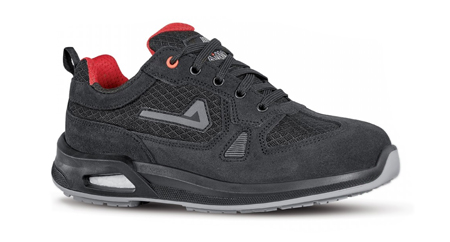 Construction
Construction
In an industry like this, which is high-risk and involves walking across
varying terrains, footwear needs to offer enhanced grip and stability. Aimont’s Trucker Kompact Revenger boot is perfect for these conditions with its exceptional slip-resistant Vibram sole and anti-abrasion toe cap with impact protection up to 200 joules. The cleated outsole is extremely protective against penetration and water and offers superior grip, helping to reduce
the risk of an accident.
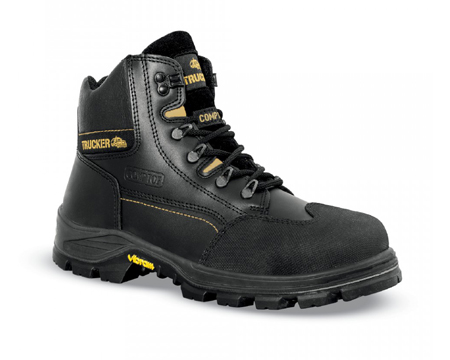
You can download this guide as a PDF here!






